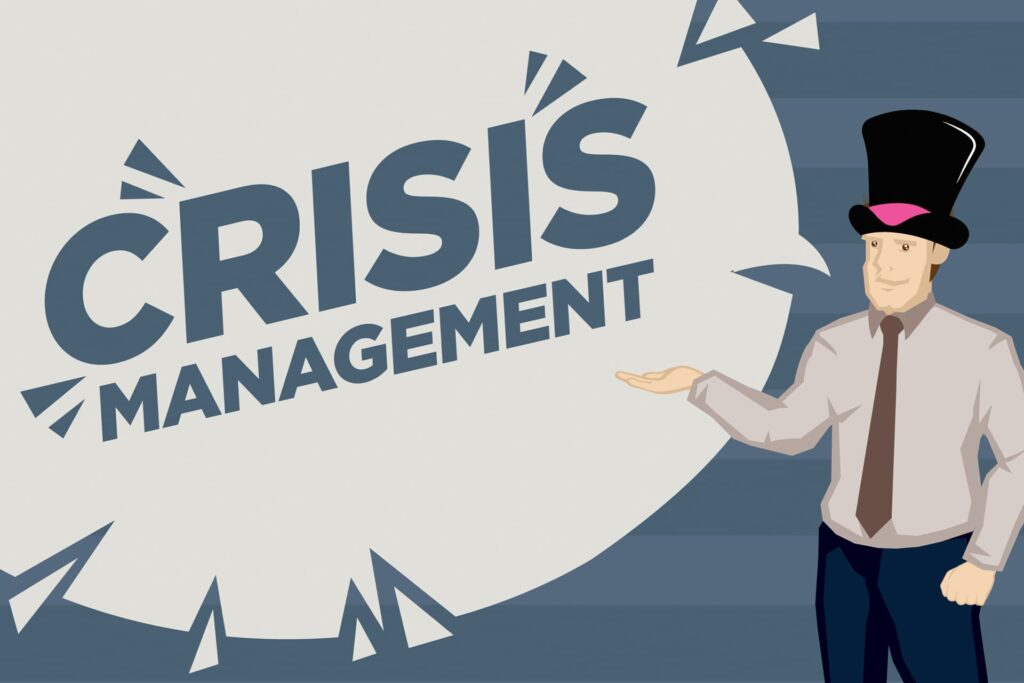Unexpected incidents are going to happen while you’re running your business. That can’t always be avoided, but not every incident is going to be a serious problem. An incident becomes a crisis for your company when it poses a serious threat to your reputation with customers, investors, and the general public.
Crisis communication is the process of responding to a crisis, protecting your reputation, and minimizing the losses you may suffer. If you’re managing a business of any size, whether it’s local or international, you need to know how to respond to a crisis.
10. Always have a plan for the worst-case scenario.
When a negative story about your business is on the news or exploding on social media, it’s already too late to ask yourself, “What should I do now?” Make a plan for crisis communication before you need it. You’ll need to establish who in your company is in charge of handling a crisis. This will vary depending on what type of business you run. You should also create templates for press releases and social media posts so you can get your message to the public as quickly as possible if a crisis does occur.
9. Transparency will help you.
When you’re receiving a lot of negative attention, it may be tempting to keep quiet and try to hide until it all dies down. The truth is, openness and transparency are important for effective crisis communication. If bad news comes out about your business and people think you were trying to hide it, that’s going to damage your reputation even more. Communicate honestly with stakeholders and the public to get ahead of the story.
8. Show that you care.
If an incident has occurred that has harmed or endangered people, keep them at the center of your crisis communication plan. Apologize to victims and take any steps you can to compensate them and protect them from further harm. If you try to avoid victims or downplay what they’ve experienced, the public may think you care more about your own losses than theirs. This is not the kind of reputation you want.
7. Keep your message consistent.
You don’t want your PR representative to tell the press one thing while your CEO is posting something completely different on social media. Compile a brief crisis communication factsheet for every employee and spokesperson your company has to ensure that you’re all on the same page. Keep everyone updated about any changes or new developments in the story.
6. You’ll need your fans.
People who already know and love your business can be allies when your reputation is at risk, especially on social media. What are you doing today to engage with fans, keep customers happy, and build loyalty to your brand? If you’re not already working on
social media marketing to establish your fan base, get started now.
5. Don’t point fingers.
When there’s a lot of negative talk happening about your business, the urge to shift the blame to someone else can be strong. You need to resist it. This approach to crisis communication may give people the impression that you’re refusing to take responsibility or trying to get away with something. Just keep focusing on calm, clear, and transparent communication.
4. Take a solutions-based approach.
When investors, employees or the public find out about an incident at your company, odds are they’ll all want to know one thing: what are you going to do about it? Your crisis communication with all three audiences should let people know what you’re doing to make sure this incident is not repeated. Don’t deny the conflict, rather emphasize the solutions you’ve found.
3. Consider the moment in the spotlight as an opportunity.
It sounds counterintuitive, but a crisis is a chance to show the world how your company reacts to unplanned incidents. If your crisis communication response reassures people that you take problems seriously, address them effectively, and that you value transparency, your company’s reputation may not suffer a serious hit instead, you might find that some positivity comes from the event being addressed.
2. Avoid the words “no comment.”
It’s the classic response to questions about an unfolding story, but it doesn’t usually play well with the general public. You don’t want your crisis communication tactics to give people the impression that you’re stonewalling reporters or investigators. If you’re still gathering facts or forming a plan, remember transparency is key.
1. Use a professional crisis communication team.
If you’re not sure where to start crafting a crisis communication plan,
reputation management professionals will know just what to do. If an incident has occurred and you’re hoping to avoid a crisis, you need expert guidance. Contact the crisis communication professionals at
Mad Hat Maven to discuss what we can do for you.




